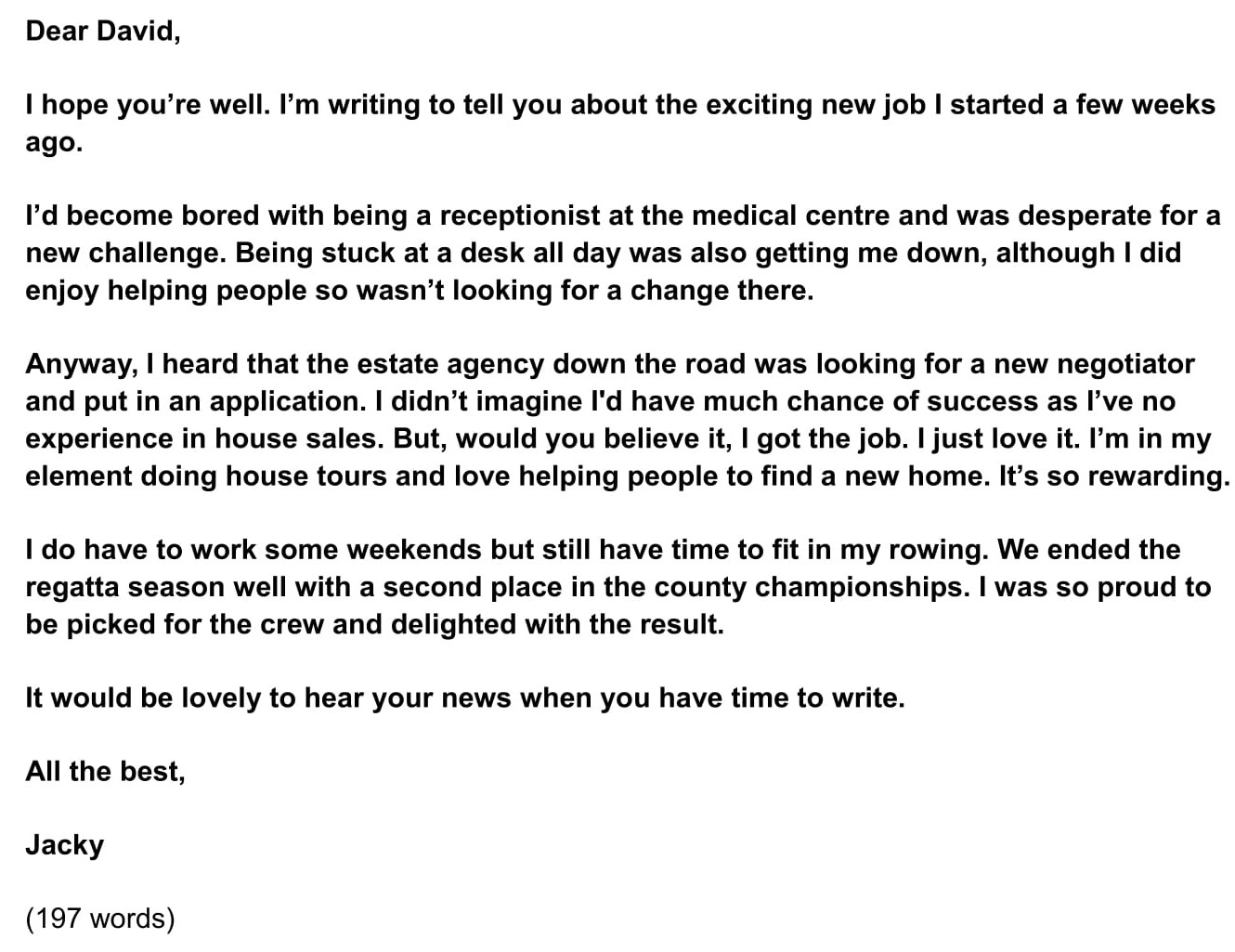Writing an informal letter can be a delightful way to connect with friends, family, or acquaintances. In this guide, we will explore how to start an informal letter effectively, ensuring that your message is warm and inviting. Whether you're penning a letter to a close friend or a distant relative, understanding the nuances of informal communication is essential. This article will delve into the structure, tone, and content of informal letters, providing you with the tools you need to start your letter with confidence.
Informal letters serve as a personal means of communication, allowing the writer to express thoughts and feelings freely. Unlike formal letters, informal correspondence lacks strict guidelines, which means you have the flexibility to personalize your message. However, starting your letter appropriately sets the tone for the entire communication. In the following sections, we will break down the essential elements of starting an informal letter and provide you with practical tips to enhance your writing.
As we embark on this journey of crafting the perfect informal letter, we will cover a variety of aspects, including salutations, introductory phrases, and the overall structure. By the end of this article, you will be equipped with the knowledge and skills to create engaging informal letters that resonate with your readers. Let's dive in!
Table of Contents
- What is an Informal Letter?
- The Importance of Informal Letters
- Key Elements of an Informal Letter
- How to Start an Informal Letter
- Common Salutations for Informal Letters
- Examples of Informal Letter Openings
- Tips for Writing Informal Letters
- Conclusion
What is an Informal Letter?
An informal letter is a personal letter written to someone you know well, such as a friend or family member. Unlike formal letters, which adhere to strict conventions, informal letters allow for a more relaxed tone and style. They can be used for various purposes, including sharing news, expressing feelings, or simply keeping in touch.
The Importance of Informal Letters
Informal letters play a crucial role in maintaining personal relationships. They help bridge the gap between individuals, allowing for open communication and emotional expression. Here are some key reasons why informal letters are important:
- Strengthening relationships through personal touch
- Facilitating open and honest communication
- Providing an outlet for creativity and self-expression
- Preserving memories and moments through written words
Key Elements of an Informal Letter
When writing an informal letter, several key elements should be included to ensure clarity and effectiveness:
- Salutation: A friendly greeting to start your letter.
- Introduction: A brief opening that sets the tone.
- Body: Main content where you share your thoughts or news.
- Closing: A warm sign-off that wraps up your letter.
How to Start an Informal Letter
Starting an informal letter involves choosing the right salutation and introductory phrases. Here’s how you can effectively begin your letter:
- Choose an appropriate salutation: Depending on your relationship with the recipient, you can use casual greetings such as "Hi," "Hey," or "Dear."
- Use a friendly tone: Your opening should reflect the warmth of your relationship. Phrases like "I hope this letter finds you well" or "It's been a while since we last talked!" set a positive tone.
- Share a personal touch: Consider mentioning something specific about the recipient, such as an event they recently attended or a shared memory. This adds a personal element to your letter.
Common Salutations for Informal Letters
Here are some popular salutations you can use to start your informal letter:
- Hi [Recipient's Name],
- Hello [Recipient's Name],
- Dear [Recipient's Name],
- Hey [Recipient's Name],
- My Dearest [Recipient's Name],
Examples of Informal Letter Openings
To help you get started, here are some examples of how to open your informal letter:
- Hi Sarah,
- I hope you're doing great! I just wanted to drop you a note to catch up.
- Hello Tom,
- It’s been ages since we last spoke! How have you been?
Tips for Writing Informal Letters
Here are some additional tips to keep in mind when writing your informal letter:
- Be yourself: Write in a way that feels natural and authentic to you.
- Keep it concise: While informal letters can be longer than formal ones, aim for clarity and avoid unnecessary rambling.
- Use humor and anecdotes: Personal stories add charm and relatability to your letter.
- Proofread: Before sending, double-check for any spelling or grammatical errors.
Conclusion
In summary, starting an informal letter requires a thoughtful approach to salutation and tone. By choosing a warm greeting and crafting a friendly introduction, you can set the stage for a heartfelt letter. Remember, informal letters are a wonderful way to connect with loved ones and share your thoughts. So, don’t hesitate to put pen to paper (or fingers to keyboard) and reach out to someone special!
Now that you’re equipped with the knowledge of how to start an informal letter, why not give it a try? Feel free to leave a comment sharing your experiences or any additional tips you may have. Happy writing!
Thank you for reading! We hope to see you back here for more insightful articles in the future.


